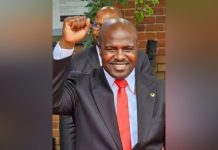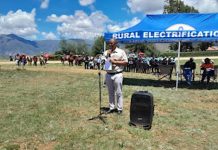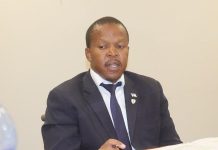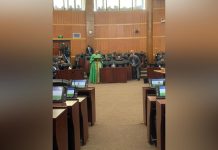Africa-Press – Lesotho. The Southern African Development Community Parliamentary Forum (SADC-PF) has sensitized Members of Parliament (MPs) on budgetary function in a two-day
workshop that started yesterday. Dubbed Capacity Development Session for MPs, this workshop is part a series of capacity building efforts to frame the functions of Hon
Members of parliament around six Sexual and Reproductive Health and Rights (SRHR) identified areas within the SRHR project currently being implemented in the
country. It runs under the theme: Promoting the Understanding of SRHR. In his welcome remarks, the Clerk to the National Assembly Advocate Lebohang Maema KC expressed delight over the goal of the workshop.
He indicated that without a budget, nothing can be achieved as no school or hospital can be built and no SRHR service procured. “All promises and commitments made concerning SRHR require
funding in one way or another. The State Budget thus remains the most reliable single source of funding for the State to conduct its SRHR activities including
promoting gender equality, preventing early and unintended pregnancies, helping children to remain in school, to mention but a few,” he revealed. Advocate Maema KC said the implementation of regional and
international commitments under Treaties or Conventions, the advancement of sustainable Development goals (SDGs) and Universal Health Coverage (UHC) all
have budgetary implications. Thus, the budgetary mandate of MPs forms part of the key outcomes under the SRHR Project. In addition, he opined that the session is quintessential to
continue to capacitate the MPs to understand the existing policy gaps and identify the legislative interventions required to comprehensively address the
national SRHR and HIV & AIDS response. He further expressed gratitude to the Management of parliament for the unstinting support they have always proffered for the
success of this project. He mentioned that the workshop was among others aimed at: capacitating MPs to understand the means through which they can intervene
throughout the budget function to increase SRHR budget use, ensuring that the MPs and Parliamentary Committees integrate budget interrogation on SRHR in
their work processes, especially on access to SRH services in the public sector and assisting MPs to conduct civil debates to improve consultations on the
inclusion of SRHR related issues in the budget proceedings to ensure a reflection of aspirations of their constituents. On the project review, SADC-PF Lesotho SRHS Officer
‘Mammehela Matamane informed that the HIV & AIDS Governance project started in 2019 and is expected to end in march 2023. She said one of the milestones of this project is the Counter Domestic Violence Bill which passed through Parliament.
Matamane said the six thematic SRHR areas identified under this project are: Sexual Gender based Violence (GBV) and Gender inequality, early and unintended pregnancy and safe abortions, commodity security and
access to SRHR and HIV/AIDS related services in view of reinforcing health systems and contributing to Universal Health Coverage, Comprehensive Sexuality
Education, non-discrimination and protection of key populations. She pointed out that legislative, budgetary, oversight and representative functions by MPs will continue to be framed within the
identified focus areas. Southern Africa AIDS Dissemination Service (SAfAIDS) Lesotho Country Focal Person Advocate ‘Mamofuta Kale specified that the challenges
young people come across because of lack of access to SRHR services due to limited budget include: coming back from health facilities without services
because of lack of commodity, no medication or provision of SRH services. Advocate Kale said as much as the health facilities are providing good services, one challenge the youth meet is that not all
facilities have the Adolescent Corner, so the youth find themselves sitting on queues with elders, which in itself discourages them to go to health facilities
due to fear of judgement from elders. Lack of resources at the institutions that house victims of GBV is another problem. Last but not least, there are no
specialized courts in the country, thus leading to cases dragging for a long time. Member of Parliament and SADC-PF Executive Member Hon. Tšepang Tšita Mosena uttered the session was very important due to the
importance of the budgetary mandate of MPs across SADC and most importantly in their respective Parliaments, being one of the core Parliamentary functions.
Hon. Mosena further brought to the table, the issue of Village Health Workers who have been seen playing a huge role in addressing HIV/AIDS matters. She urged for the Village Health Workers, who are normally elders, to also be inclusive of the youth in a quest to end the stigma.
For More News And Analysis About Lesotho Follow Africa-Press






